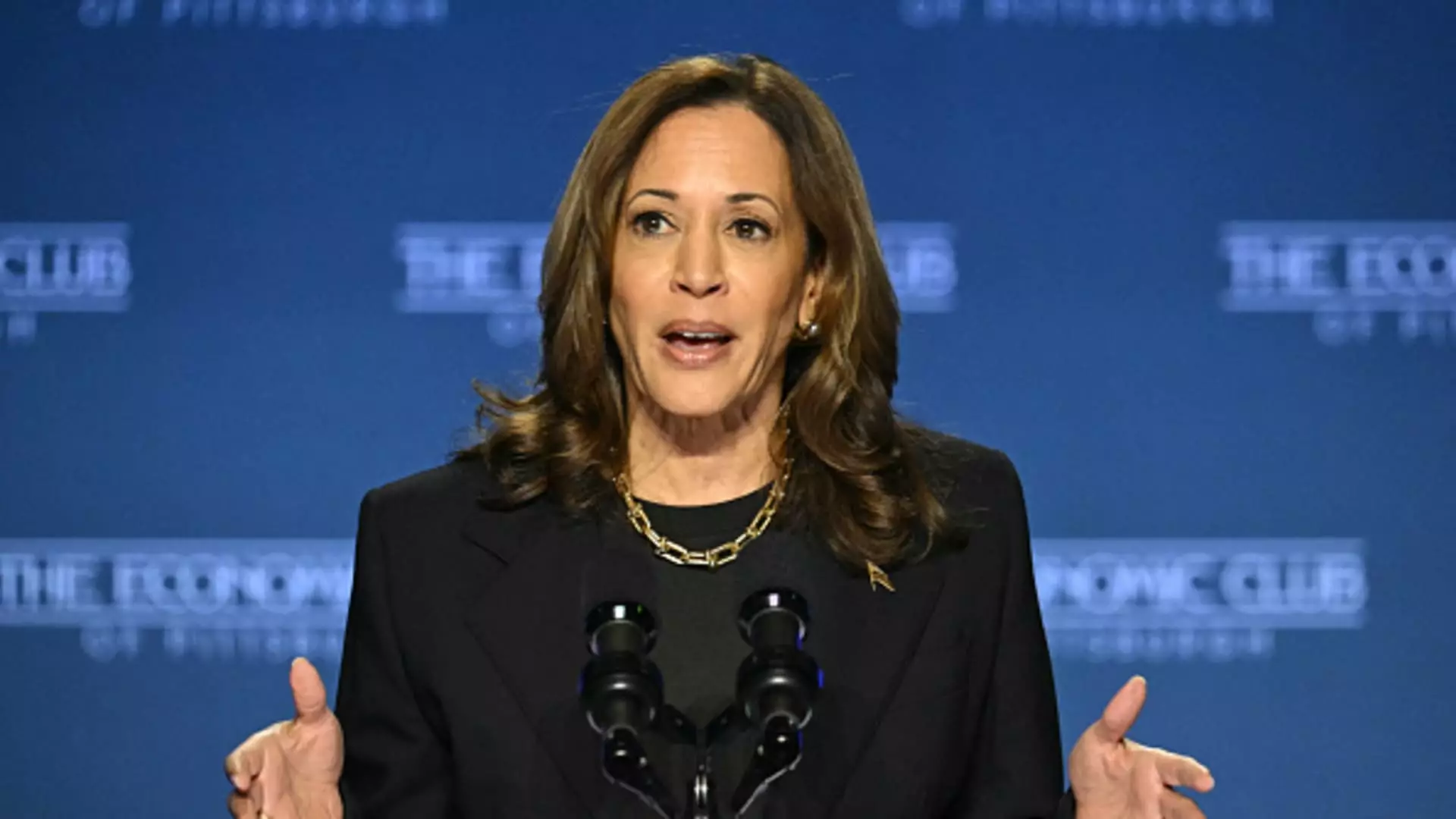In the realm of high-stakes politics, voting behaviors among affluent individuals can provide a revealing glimpse into broader economic sentiments. A recent survey conducted by UBS has unveiled intriguing data, indicating that while many millionaire investors favor Vice President Kamala Harris in the upcoming election, they still assign higher economic performance ratings to former President Donald Trump. This juxtaposition of political allegiance against economic evaluation highlights a complex relationship between investor confidence and political candidate support.
The survey revealed that 57% of millionaire investors are inclined to vote for Harris, while 43% lean towards Trump. This division is particularly pronounced among party lines; a staggering 91% of Democratic millionaire respondents plan to support Harris, while Trump finds steadfast backing from 88% of Republican millionaires. Notably, the survey also illustrates a unique disconnect among independent voters, with 60% favoring Harris while Trump captivates 40% of this pivotal demographic.
A significant finding from the survey emphasizes that millionaire investors identify the economy as their paramount concern, mirroring national trends across various voter demographics. An impressive 84% rated the economy as the primary issue in the election, outpacing concerns around Social Security and taxes, which stood at 71% and 69%, respectively. Interestingly, while the inclination to vote for Harris prevails, these respondents rate Trump slightly higher in economic acumen, with 51% believing Trump is better equipped to manage economic affairs compared to Harris at 49%.
This preference may stem from contrasting tax policy proposals; Trump champions the continuation of the 2017 tax cuts, whereas Harris advocates for modifications that would mainly benefit those earning below $400,000, alongside advocating increased taxes for the wealthy and corporations. Such nuances in policy can create voter hesitancy, as investors weigh personal tax impacts against broader societal responsibilities.
Despite the division in political preference, the survey reflects a robust underlying confidence among millionaire investors regarding economic performance, with 55% expressing high confidence in economic stability—a noticeable increase from 43% in the previous election cycle amid the pandemic’s economic uncertainties. Moreover, three-quarters of participants conveyed strong optimism about their portfolio returns in the near term. This optimism suggests that regardless of their candidate choices, wealthy investors are actively planning to adapt their investment strategies based on the election outcomes.
Should Trump secure victory, there’s a collective inclination towards investing in defense and energy sectors. Conversely, a win for Harris would prompt a pivot toward healthcare, sustainable investing, and technology firms. This proactive approach underscores how the political climate can significantly influence asset allocation and investment focus.
The UBS survey encapsulates the intricate dynamics between wealth, political inclination, and economic sentiment. As millionaire investors navigate their support for candidates, their dual perspectives on policy efficacy reveal a landscape where economic priorities predominantly guide decision-making. With elections looming, the manifestations of these preferences on investment behaviors will likely illuminate broader trends reflective of society’s economic health, making it crucial for stakeholders to monitor these developments closely.

Leave a Reply